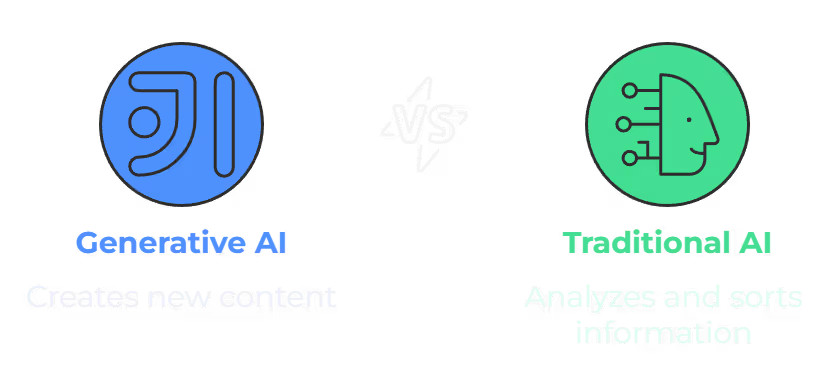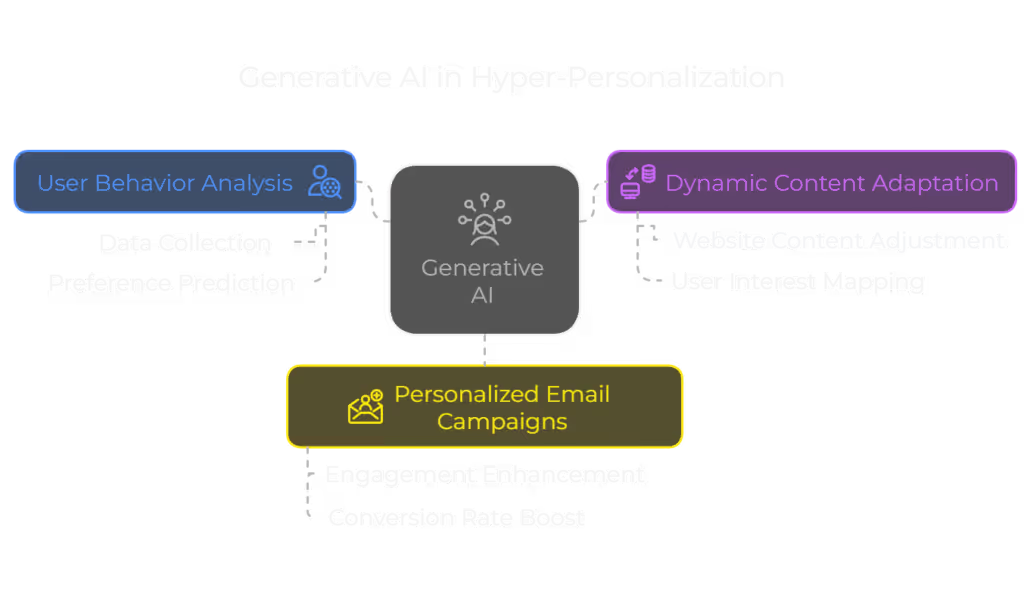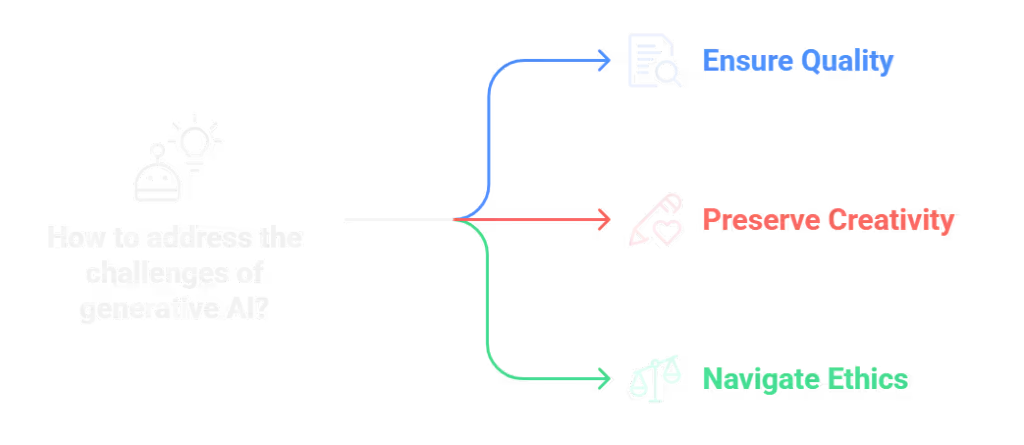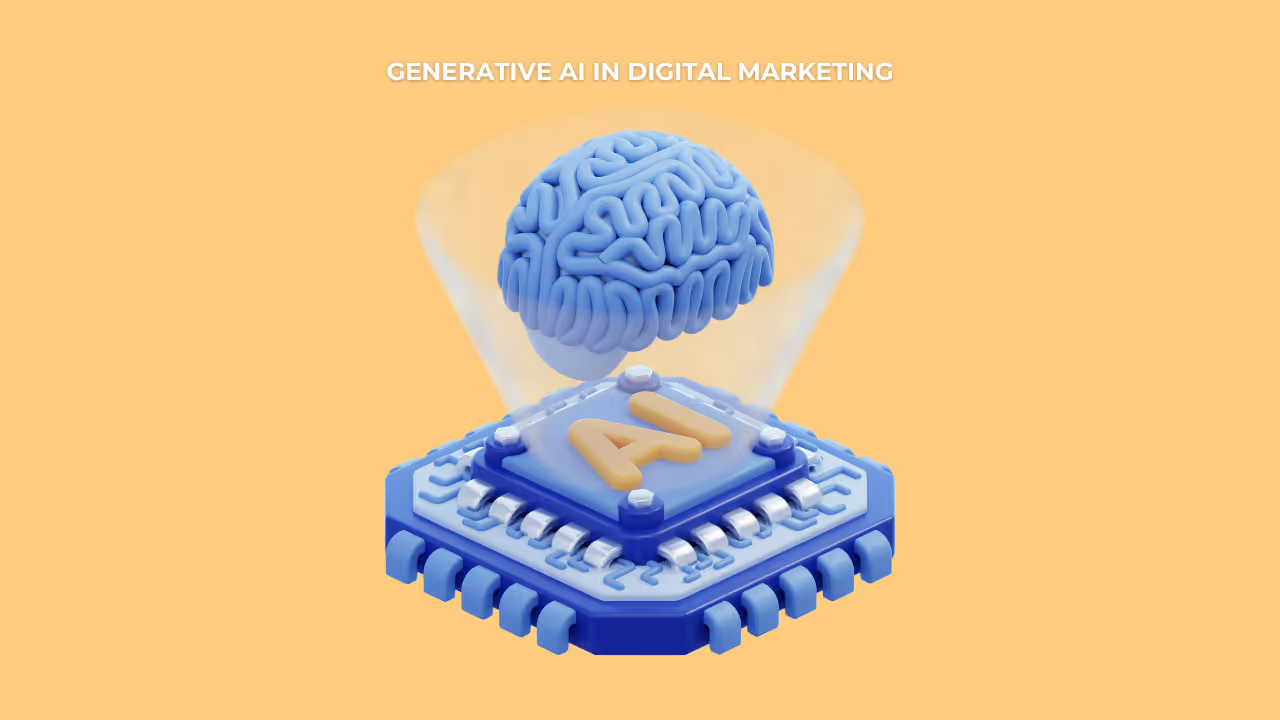The Future of Marketing is Here, Are You Ready?
Imagine a world where marketing content is created in seconds, customer service chats feel as personal as speaking with a human, and ad campaigns optimize themselves in real-time. This isn’t science fiction, it’s happening right now, thanks to generative AI in digital marketing. But how exactly is this technology changing digital marketing, and what does it mean for businesses and marketers?
Keep reading to discover how generative AI is transforming content creation, customer interactions, and marketing strategies, and why understanding this shift is essential for staying ahead of the competition.
What is Generative AI?
Generative AI refers to artificial intelligence models that can create text, images, videos, and even music based on patterns in data. Unlike traditional AI, which analyzes and sorts information, generative AI produces entirely new content. Tools like ChatGPT, Midjourney, and DALL·E have already demonstrated how powerful this technology can be.
In digital marketing, generative AI is reshaping the way businesses interact with audiences, produce content, and personalize experiences at scale.

How Generative AI is Changing Digital Marketing
1. AI Content Creation: Faster, Smarter, and More Scalable
One of the biggest impacts of generative AI is on content creation. Marketers can now produce high-quality blog posts, social media captions, emails, and even video scripts within minutes.
Benefits:
- Speed: AI generates content in seconds, significantly reducing production time.
- Scalability: Businesses can create personalized content at a massive scale.
- Consistency: AI ensures a uniform brand voice across different platforms.
Real-world example: E-commerce companies are using AI to generate thousands of product descriptions tailored to different customer segments.
2. Conversational AI: Enhancing Customer Interactions
Generative AI is also powering chatbots and virtual assistants, making customer service more efficient and human-like. Conversational AI can understand context, emotions, and preferences, providing personalized responses that improve customer satisfaction.
Applications:
- AI-powered chatbots on websites and social media respond instantly to customer inquiries.
- Email automation tools draft personalized responses to customer concerns.
- Voice assistants like Alexa and Google Assistant provide seamless interactions with brands.
3. AI-Driven Personalization: The End of Generic Marketing
Consumers expect brands to understand their needs. Generative AI analyzes vast amounts of data to create hyper-personalized experiences, from product recommendations to customized emails.
How it works:
- AI studies user behavior and predicts preferences.
- It dynamically adapts website content based on user interests.
- Personalized email campaigns improve engagement and conversion rates.

4. AI in Advertising: Smarter, More Effective Campaigns
AI is revolutionizing paid advertising by optimizing campaigns in real time. It analyzes audience behavior, adjusts bidding strategies, and even creates ad copy tailored to specific demographics.
Key advancements:
- Automated ad copywriting: AI generates persuasive headlines and descriptions.
- Predictive analytics: AI forecasts which ads will perform best. Tools like Morpheus help businesses leverage Marketing Mix Modeling (MMM) to make data-driven decisions and optimize ad spend more effectively.
- Dynamic targeting: Ads are shown to users most likely to convert.
5. SEO and AI: Smarter Search Optimization
SEO is evolving with AI-generated content and search algorithms becoming more sophisticated. AI tools help marketers:
- Identify high-ranking keywords.
- Optimize content for search intent.
- Generate metadata and alt text efficiently.
Google's AI-driven updates prioritize valuable, human-centric content. Marketers need to ensure AI-generated content remains authentic and useful.
Challenges and Ethical Considerations
While generative AI offers huge advantages, it also presents challenges:
1. Risk of Low-Quality or Inaccurate Content
AI-generated content needs human oversight to ensure accuracy and relevance.
2. Lack of Human Creativity and Emotion
AI can generate content, but human creativity is still irreplaceable for storytelling and emotional connections.
3. Ethical and Copyright Issues
The use of AI-generated content raises questions about originality and intellectual property rights.

What’s Next for Generative AI in Digital Marketing?
As AI technology evolves, it will become even more integrated into digital marketing strategies. Future trends include:
- AI-powered video creation: Platforms that allow brands to create videos without human actors.
- Emotional AI: AI that understands and responds to human emotions to create deeper connections.
- Voice and audio content: AI-generated podcasts and voice assistants will shape brand communication.
Conclusion: Embrace AI or Fall Behind
Generative AI is not just a trend, it’s a fundamental shift in how marketing operates. Brands that leverage AI will gain a competitive edge, while those that ignore it risk being left behind. Whether it’s AI content creation, conversational AI, or predictive advertising, businesses must start integrating these technologies into their marketing strategies now.
The question is no longer if AI will impact digital marketing, but how you will use it to your advantage.







